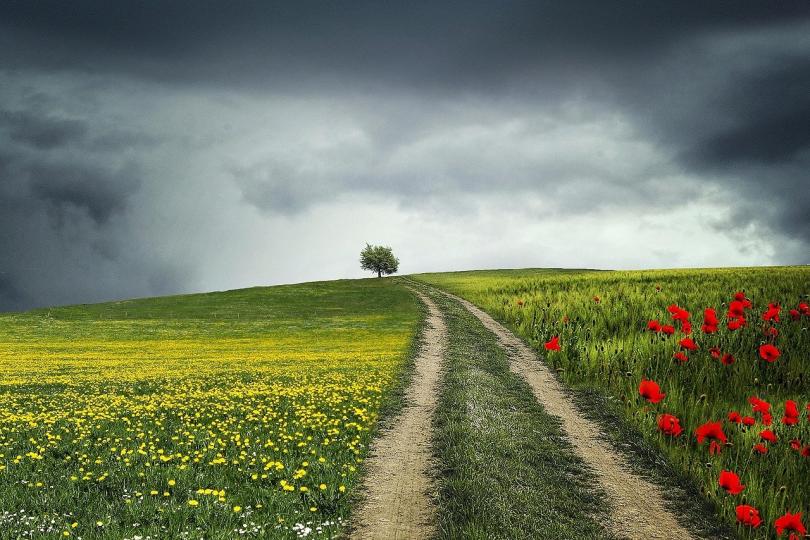Choose a path and get started.

Whatever happens now, there are two things we can count on: We will have artists among us. And artists will make art. As individuals and as an arts community, we can choose how we support those artists and that art.
Pick a point in the history of any culture. A point farther back than you can directly remember it. How do you know what you know about that time? Most of what we know relies on artists making art: Stories. Visuals. Objects. Artists capture the experience of their time and place and embody that experience in their art. Artists tell us not only what happened, but what it means. We are in a time and place with an overwhelming number of things happening all at once, and precious little shared understanding of what it all means. Only artists will do that. And they will.
But how will they do that? Will artists be able to earn a living wage making the art that gives us meaning? That was an insecure proposition two years ago, as it was twenty years ago, and two hundred years ago. As I reflect on it myself, I see that an artist making a living with their art requires one of two things: Profit or Patronage. An artist may independently produce goods for a market in which artistry adds value. Something that can be purchased: writing, visual art, music, pottery, shoes, jewelry, wooden spoons. Otherwise, an artist can rely on patronage. Patronage might come from an individual, a support network, an institution, a government or elsewhere. Some entity which determines that the work of the artist is valuable enough to be sheltered from the profit-based market, and decides which artists are worth supporting.
Either Profit or Patronage come with trade-offs. Nonprofit arts organizations have made vast amounts of meaning-filled art possible. And the fragility of their collectively vast structure also puts people and entire art forms at risk when these structures fail. Individual or government patronage tends to use biased structures to pick and choose which art and artists will thrive and which will not. And independent artists selling their work in an open market face the challenges of artistic vision being driven by marketability.
We don’t have to agree which way is best. What happens now will likely include systems of both profit and patronage. But we can, as individuals and as an arts community, choose to support and advocate for systems that support artists.
Supporting individual artists.
This is not just buying from artists when you can. Not just avoiding unsustainable mass production. This is about building a culture where artistic production is rewarded. It can be done. In my lifetime, it was only through deliberate sustained effort that we built a culture in which it feels rude to light up a cigarette in someone’s car, or in a home you are visiting. It worked. The Art Center in Jamestown, ND worked for years to build a local culture in which it was a point of pride for every home to display art made by local artists. Last time I checked, they were succeeding. We can do it.
Supporting networks.
Again, this is not just making your annual gift to your favorite nonprofit. This is helping others know the importance of giving. Serving on boards of directors. Volunteering for grant review panels. Supporting people who work for nonprofits in any capacity. Pitching in to build new structures based on collective or cooperative models.
Supporting governments.
Not just showing up for (the critically valuable) arts lobbying day at the capital. Not just writing (also essential) letters. This means running for office, bringing clear messages, demanding accountability, continuing the work through multiple losses. Think of the decades of work toward marriage equality. It wasn’t the (awesome) lawn signs that turned the tide. It was more than a generation of persistence through heartbreak after heartbreak. And - eventually - it worked.
Do we have to agree which path is best? No. Can every one of us do every one of those things? Of course not. But if half of us picked just one of those things, the impacts would be remarkable.




